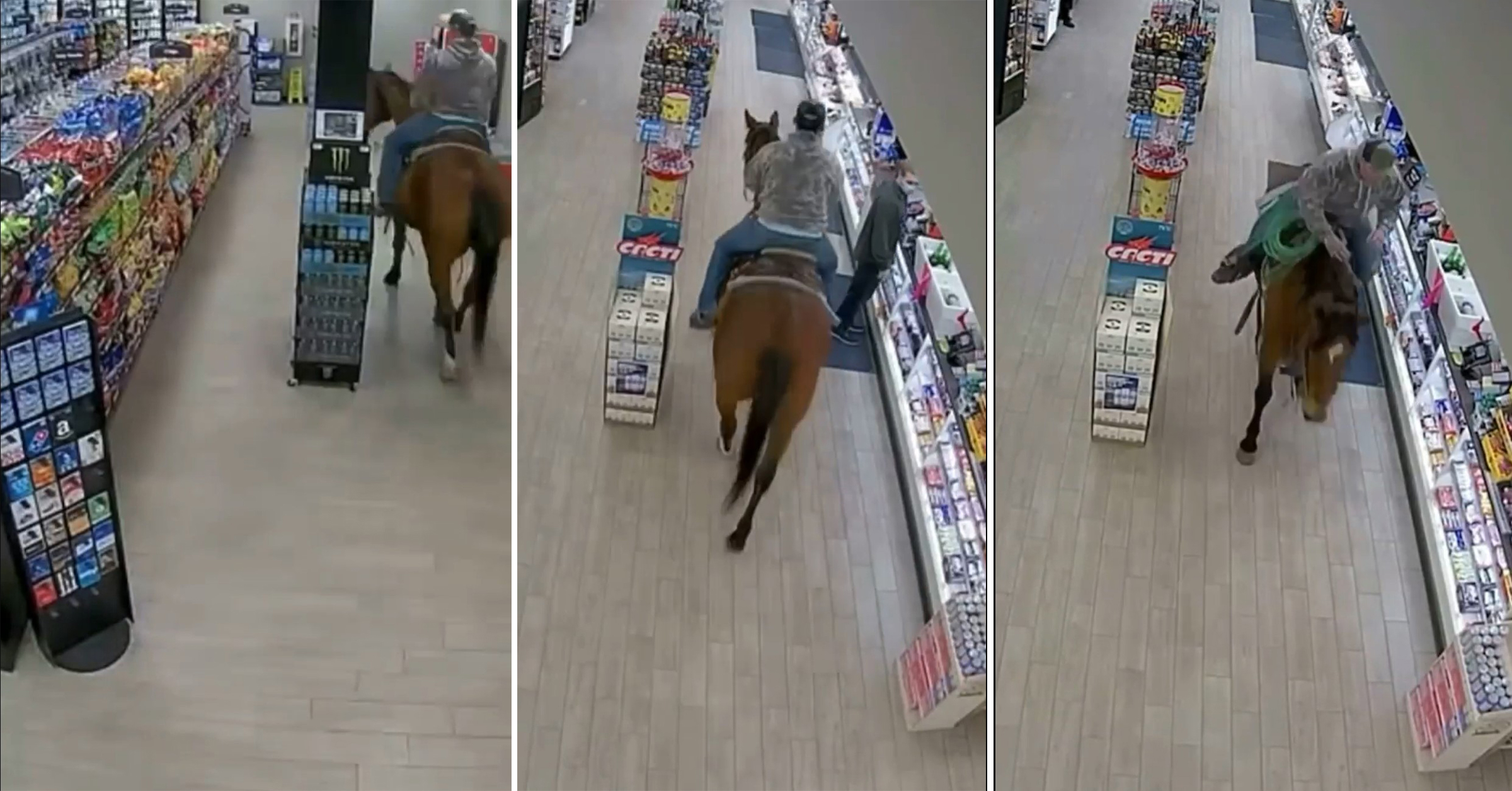Imagine waiting in line at the market’s checkout and a horse comes behind you and waits in line as well. What would be your reaction? Check this video, where a cowboy comes into the grocery store and takes what he needs like it’s something normal, and everybody does that. Maybe he thought it would be funny to ride his horse into the store to grab a quick snack.

You can basically train your horse to do anything, even to participate with you in something that may be illegal. We really don’t think this is something that the police would overlook very easily. But the good part is that the horse will not suffer from these kinds of actions.

Horses would do anything together with their human because they do not know what is good and what is bad. They will always trust their owner. But little is known about trust from the horse’s perspective, but it probably does not mirror the human experience. People have an emotionally based social need for companionship, and relationships with animals appear to satisfy this need.
In contrast, a horse’s social needs are rarely met through his relationships with humans. Harmonious communication and physical coordination between horses and humans rely on mutual trust and cooperation. Leaders gain trust by demonstrating competence and ability, showing kindness and goodwill, and making an emotional connection with others.

To earn a horse’s trust, people can model these qualities by using consistent and skilled handling techniques, developing sensitivity to the horse’s emotional state, and responding to the horse in a gentle, fair, and forgiving manner. Frequent positive experiences are also important for creating a foundation for secure and trusting horse-human relationships, especially early in life.
Something every horseback rider wants to know is whether or not their horse trusts them. Having a horse that fully trusts you can help you win riding competitions and avoid dangerous situations.
